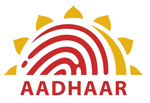 When I first heard about Aadhaar I figured it was just another Government of India project that would go nowhere. (For a quick refresher on Aadhaar I put together a quick 10 slide summary.) As the program is starting to gain traction, many people are starting to challenge the claims and veracity of the projects purpose.
When I first heard about Aadhaar I figured it was just another Government of India project that would go nowhere. (For a quick refresher on Aadhaar I put together a quick 10 slide summary.) As the program is starting to gain traction, many people are starting to challenge the claims and veracity of the projects purpose.
One of them is Sucheta Dalal, who is a highly acclaimed journalist who broke the story on India’s largest insider trading scandal in 1992 involving Harshad Mehta (he was the first person in India to buy a Lexus LS400). I’ve actually had a chance to meet Sucheta and she is a straight shooter. I’ve commented in the past that I feel Aadhaar will help to ease corruption. On Twitter, Sucheta had a more direct question for me:
@mrjain please enlighten me how a number allotted to you will curb corruption? I am all ears
One of the misconceptions about Aadhaar is that it will solve every problem that affects India, it won’t. The other misconception is that it will be 100% fool proof and rock solid from day one, it won’t. Aadhaar is a technology startup that happens to be ventured backed by the Government of India. As with any startup or government program there will be teething and integration issues that will have to be dealt with in real-time.
My answer to Sucheta’s tweet is “yes, but probably not for Sucheta and me.” It would benefit people that suffer from the “poverty tax”, which is a large percentage of the Indian population. If you receive a pension, you might have to pay a “fee” to the clerk to speed up the transaction. Same issue with food, subsided kerosene, government jobs, etc…if you want something you have to pay a fee. That fee hurts more if you earn less and hence it’s called the poverty tax or you can call it what it really is…corruption. With an Aadhaar number the government would directly deposit the money into your bank account. No middle man to slow down the transaction or take money from you to speed up the process of getting YOUR money.
Fear, uncertainty and doubt are the 3 things that critics raise when talking about Aadhaar. Fear of what the Indian government will do with the data. Uncertainty about how much money is being spent on the project. And lastly, doubt of whether the program can achieve anything impactful.
The other complaint I’ve heard from several people is they feel it’s just a large technology project to benefit system integrators like Infosys, Wipro and TCS. In particular, a friend of mine questioned why Aadhaar was so keen on using iris and fingerprint scanners to authenticate people. Was it because that would force new hardware sales for iris and fingerprint scanner vendors. Why not use voice verification via cell phones that are so readily available? Granted, there might be issues with voice pattern recognition but why not open it up to a college competition for the top technology schools (read IIT’s) to try and solve the problem.
Personally, I think that’s where the Aadhaar team has done a rather poor job of openly communicating and should really improve in that department. I still firmly believe Aadhaar is a step in the right direction and will eventually benefit a large percentage of the Indian population.


well put!
Rajni
has almost become synonymous with the word Original, because of the
way he has portrayed it in every move he makes. Taking this a step
further, Rajni now talks about being original and how it pays in the
long run. Find out more on how he goes about it by clicking here http://bit.ly/n9GwsR